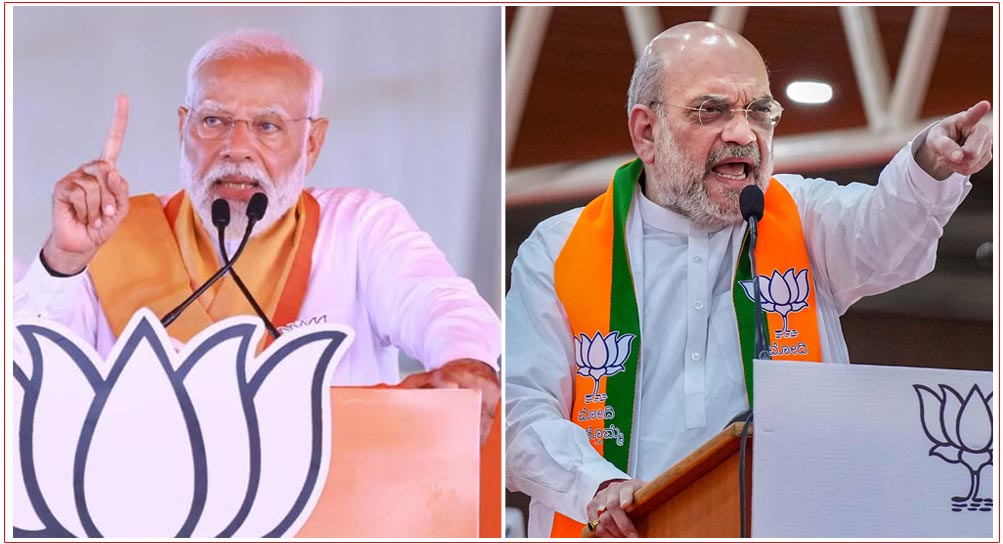Why Did Modi - Amit Shah Skip Muslim Reservations In AP?
Modi, Shah scared of AP Muslims

Why did Modi-Shah skip Muslim Reservations in AP. The BJP's stance on Muslim reservations has come under scrutiny, particularly in Andhra Pradesh, where their position seems to contradict their nationwide rhetoric. While Prime Minister Narendra Modi and Home Minister Amit Shah have been vocal about abolishing religious reservations, they have remained silent on the issue during their recent campaign rallies in Andhra Pradesh.
Inconsistency in BJP's Stance:
Nationwide Rhetoric: Both Modi and Shah have openly criticized religious reservations, particularly Muslim reservations, claiming they promote division within the country. This aligns with the ideology of the RSS, the BJP's parent organization.
Silence in Andhra Pradesh: Despite campaigning in Andhra Pradesh, neither Modi nor Shah addressed the issue of Muslim reservations. This silence is conspicuous, especially considering the state has a significant Muslim population and regional parties like TDP have promised to protect their reservation quotas.
Possible Reasons for the Discrepancy:
Political Strategy: Analysts believe the BJP's silence might be a strategic move to avoid alienating Muslim voters and jeopardizing their alliance with the TDP in the state.
Focus on Other Issues: The BJP might be prioritizing other campaign issues like development, corruption, and national security, which they believe resonate more with the broader electorate in Andhra Pradesh.
Criticisms and Questions:
Opposition parties and critics have accused the BJP of double standards and hypocrisy, questioning their commitment to their stated ideology.
Concerns about hidden agendas and vote bank politics are being raised, questioning the BJP's true intentions in Andhra Pradesh.
Impact on Muslim Community:
The Muslim community in Andhra Pradesh is understandably apprehensive about the BJP's ambiguous stance on their reservation quotas.
The lack of clarity from the BJP has created uncertainty and fear among Muslims about the future of their reservations.
Overall, the BJP's contradictory stance on Muslim reservations in Andhra Pradesh raises questions about their political strategy and commitment to their stated ideology. It remains to be seen how this issue will play out in the upcoming elections and what impact it will have on the state's political landscape.




 Pragya Jaiswal Knocks All With Her Killer Curves
Pragya Jaiswal Knocks All With Her Killer Curves What Sacrifice Did Buchi Babu Make For RC16?
What Sacrifice Did Buchi Babu Make For RC16?